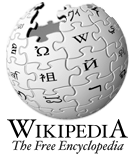The secondary level includes schools offering grades 7 through 12 and grade 13. This category includes university-preparatory schools or "prep schools", boarding schools and day schools. Tuition at private secondary schools varies from school to school and depends on many factors, including the location of the school, the willingness of parents to pay, peer tuitions and the school's financial endowment. High tuition, schools claim, is used to pay higher salaries for the best teachers and also used to provide enriched learning environments, including a low student to teacher ratio, small class sizes and services, such as libraries, science laboratories and computers. Some private schools are boarding schools and many military academies are privately owned or operated as well.
Religiously affiliated and denominational schools form a subcategory of private schools. Some such schools teach religious education, together with the usual academic subjects to impress their particular faith's beliefs and traditions in the students who attend. Others use the denomination as more of a general label to describe on what the founders based their belief, while still maintaining a fine distinction between academics and religion. They include parochial schools, a term which is often used to denote Roman Catholic schools. Other religious groups represented in the K-12 private education sector include Protestants, Jews, Muslims and the Orthodox Christians.
Many educational alternatives, such as independent schools, are also privately financed. Private schools often avoid some state regulations, although in the name of educational quality, most comply with regulations relating to the educational content of classes. Religious private schools often simply add religious instruction to the courses provided by local public schools.
Special assistance schools aim to improve the lives of their students by providing services tailored to very specific needs of individual students. Such schools include tutoring schools and schools to assist the learning of handicapped children.











ไม่มีความคิดเห็น:
แสดงความคิดเห็น